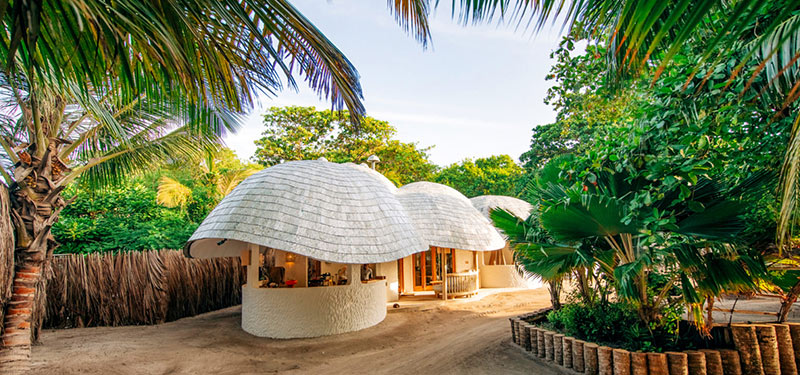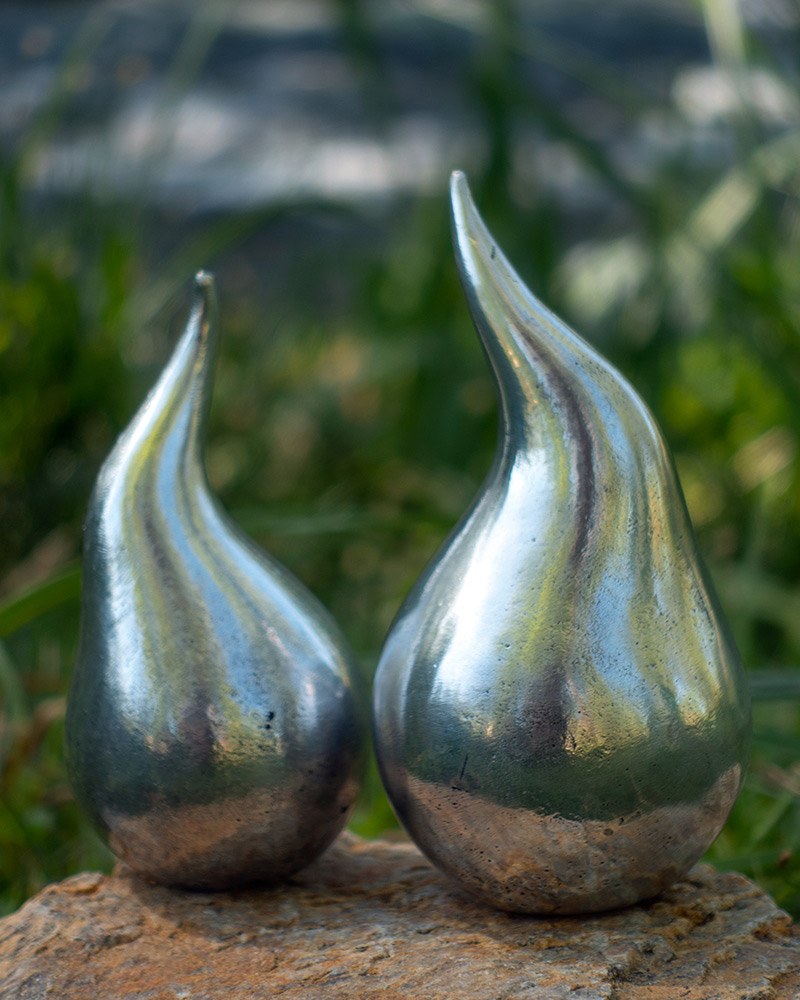Reverse Osmosis public water drinking station shaped like a water droplet new functional public sculpture
Author: Distil Ennui | Post Date: 01-09-2023I have often written about the ethics of water, and how that soon wars once fought over access to oil, will soon erupt over access to clean water. However in todays social media world, it seems that 'words without action' can be found anywhere and everywhere; so for those of you that are new to my journal, in 2021 I opened the first carbon neutral plastic and aluminium recycling facility in the Maldives 'Makers Place' specifically targeting single use pollution and has been fully proven in operations, now with plans to open more facilities in 2024.

To ensure circularity is built into the DNA of the facility and to help the community stop buying bottled water I have designed the first of a series of sculpture works that incorporate a sophisticated reverse osmosis filter water system to offer a safe drinking fountain to restore faith back into public drinking water.

A Maquette of the design cast in solid aluminium at 1/10th scale.
Designed to be installed in any space inside or out driven with off grid Solar where necessary, it can handle being connected to all water quality types so that people feel safe again drinking from public water services. An early version of the 3d render can be seen below, and is soon to go into production.
3d Render video with voiceover introduction of the design.
Today we cannot avoid the data of what is in the water supply and not be aware of PFAS or ‘forever chemicals’, they are now found in every public water supply around the world today, and it is a chemical compound of human invention. PFAS are extremely persistent within the environment and our bodies and are proven to lead to health problems such as liver damage, thyroid disease, obesity, fertility issues and a multitude of cancer variations; these really are terrible things to find in your water supply. Reverse Osmosis filtration removes these and ALL other chemicals, taste and odour. All unhealthy, inorganic minerals that the body cannot process. The build-up of these chemicals & minerals, especially calcium salts, leads to problems such as gallstones and kidney stones.
Understanding the benefits to your health and the environment is an important stage in helping people think perhaps before buying bottled water. Remembering the added chemical cocktail we find in public water system these days, a reverse osmosis water filter system produces nothing other than pure H2o.
Understanding the health benefits of drinking Reverse Osmosis water..
- RO systems are highly effective at removing a wide range of contaminants from water. These can include heavy metals (like lead and arsenic), dissolved salts, bacteria, viruses, and chemicals (such as chlorine and fluoride). This makes RO water safer to drink, especially in areas with poor water quality. Many people find that RO water tastes and smells better than tap water, as it removes impurities that can contribute to off-flavours and odours.
- RO water has a lower mineral content, which can be beneficial for individuals with certain medical conditions, such as kidney stones. It can also be preferred for some industrial and scientific applications where precise control of water purity is necessary.
- RO water will result in less mineral buildup in appliances like kettles, coffee makers, and dishwashers. This can extend the lifespan of these appliances and improve their efficiency.Despite these benefits, it's important to be aware of the potential drawbacks of drinking RO water.
Fitting customisable mineral filter into the system is important, allowing you to add beneficial minerals such as salts and magnesium back into the water to create a specific mineral profile that suits your preferences or health needs, these can even be modified for specific taste profiles. Without this RO water tends to be slightly acidic due to the removal of all alkaline minerals, a mineral filter can balance the water for taste and health benefits.
The drawbacks..
- RO systems produce around 30% wastewater as a byproduct of the filtration process. This water is not harmful but contains what the filter system removed plus wastewater which can be a concern in areas with water scarcity.
- RO systems can be relatively expensive for an individual to purchase and maintain. They require periodic filter replacement, and the membranes may need occasional servicing, cleaning or replacement. They also need power to drive the filter pump, as mentioned before this can be solar driven.
- RO can remove minerals that are important for a safe and balanced diet, remembering that only H2o comes out of an RO filter, absolutely nothing else and that can cause health issues to some people in the community if you do not have a balanced diet. If you are concerned about the loss of minerals, you can use a remineralisation filter or simply be sure to eat a balanced diet when drinking pure H2o.
For me you can understand why I feel this is so groundbreaking when coupled with the 'Life-Can' project, a design that offers an affordable personal water bottle made from recycled materials in a carbon neutral studio such as 'Makers Place'.
'Life Can' 3d Render video with voiceover introduction.
The word convenience and what we expect of it in a modern society, does in fact carry the heaviest burden for nature to bear, it is more convenient to buy water on the go in a portable 'disposable' bottle. Imagine that you were responsible for you own water bottle with you always; and instead of buying a convenient plastic bottle of water during your day, you simply refilled it from available filtered water sources. From this point onwards, you would become a zero plastic water bottle user: and all you had to pay for it was a little less convenience.
In the Maldives I am working towards a fully circular solution to help get an entire nation away from their dependancy of having to buy water in plastic bottles. I have proposed installing these across the capital city, in universities, colleges, schools and transport hubs. To this day there is still not a public water fountain for tourists when they arrive at Male Airport, they are forced to but it in bottles, just as the Maldivian population in the capital city do.
Over 90% of bottled (mineral) water sold today is in fact just filtered tap water at best, with no health benefit aside of it being plain water. However the footprint from the packaging, logistics and industry alone to support the 'convenient lifestyle' of being able to buy a plastic bottle of water rather than carry your own is simply vast. There is also a huge amount of data that consumption from plastic containers is wreaking havoc on your health, whilst this is a separate thread for conversation - you can read this worrying data from the Eco Watch resources at - https://www.ecowatch.com/7-types-of-plastic-wreaking-havoc-on-our-health-1882198584.html.
'The Naive Twins' piece I 'Twisted' with a crumpled base, standing askew & II ‘Jezebel’ standing straight and tall.
weight +/- 1,250 grammes - h 20cms x w 6 cms (each)
Edition of VII
Read the story behind the creation of 'The Naive Twins' a pair recycled aluminium water bottles, a comical parody on the drinks industry and the pollution it causes affecting not only from carbon emissions that impacts on global warming but also the blight on our landscapes, rivers & oceans as they break down poisoning every living species on the planet. These sculptures are made exclusively from recycled beach cleanup aluminium drinks cans.
I hope you found this journal entry informative, please do stay connected.
Join the mailing list.. Register
Telegram Channel.. DistilEnnui
Instagram.. AJHamilton.Artist
Twitter.. DistilEnnui